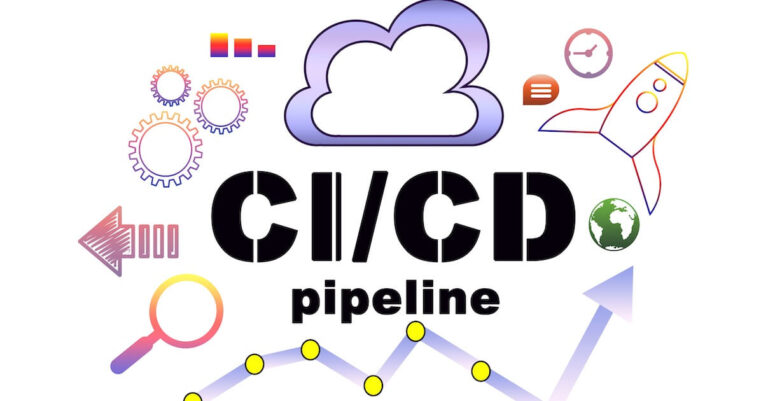DevOps primarily focuses on the mindset change and cultural shift in how organizations should approach the software development process of shipping code. Since companies have always searched for new ways of shipping code faster, DevOps has emerged as the solution to fuel innovation.
An organization looking to avail cloud promises needs DevOps that help fill gaps between development and operations, IT and business, applications, and infrastructure. There are many DevOps practices assisting companies to become successful and move forward in their innovation and transformation journey quickly. Let’s look at some stats that renowned tech market research leaders shared and understand what these say about DevOps adoption.
DevOps Market size exceeded $7 billion in 2021 and is expected to grow at a CAGR of over 20% from 2022 to 2028 to a value of over $30 billion. In 2021, 67% of the DevOps market’s importance in the USA was made up of DevOps solutions (tools), with 37% accounted for by services. By 2028, around 55% of the market’s value is forecast to be accounted for by DevOps services and the remaining 45% by tools. Source – Global Market Insights
According to another source published by Allied Market Research, the global DevOps market size was valued at $6.78 billion in 2020 and is projected to reach $57.90 billion by 2030, registering a CAGR of 24.2% from 2021 to 2030. Additionally, Asia-Pacific would exhibit the highest CAGR of 26.3% during 2021-2030.

Image source: Global Market Insight
There are some additional facts about DevOps that should be discussed:
- 25% of software developers would like to acquire DevOps skills.
- 28% of recruiters have difficulties hiring the DevOps expertise they need.
- 38% of IT recruiters want to hire for DevOps skills.
- 21% of software development teams adopted a DevOps approach to source code management in 2021.
Source – Statista
Why Does An Enterprise Need DevOps Professionals?
DevOps today plays a crucial role in companies improving customer experience and satisfaction. According to CA Technologies Research, companies that have adopted DevOps see a 45% improvement in customer satisfaction and a whopping 74% increase in customer experience. DevOps has led to a new mindset and helped companies understand and experience that a better customer experience shows greater customer loyalty, better customer retention, improved sales, and increased ROI.
As it has been proven that DevOps is a top skill, different business units in enterprises across the globe are looking to combine such talent in their teams. However, finding the right talent is equally becoming tough. Upskilling is, however, a proposed solution to meet this skill gap, but it is supposed to fulfill the requirements of the future, not the urgent needs. DevOps engineers mostly worked around cloud services and juggled between provisioning, quality assurance, operations, and managing distributed application systems and lots more activities. A DevOps professional oversees the entire software release and delivery lifecycle — from ideation and planning through development and testing to product release and feedback analysis.
While DevOps professionals’ primary tech-related responsibilities include giving continuous feedback on failed builds, automating build and release pipelines and infrastructure management, enterprises are looking for professionals with such elevated knowledge about all aspects of SDLC and release management. Since upskilling is a time taking process, and it wouldn’t fulfill the current needs of the project release, outsourcing DevOps or hiring dedicated DevOps professionals from cloud consulting companies emerged as the perfect solution for enterprises. Let’s understand in the below section the advantages of hiring DevOps and how this approach helps companies elevate the development and release velocity of applications.
Advantage Of Outsourcing DevOps
DevOps outsourcing is redirecting the design, development, and integration of DevOps solutions and infrastructure maintenance for your organization to a third-party service provider. Accordingly, the DevOps consulting company forms an expert team that works alongside your in-house software team and manages your day-to-day operations.
In addition, a DevOps provider helps you implement best practices and principles in your organization, and best aligns them with your business goals. The services provided vary for each client and project and are fully customizable. Since each case is different and has different purposes, the client and the DevOps service provider must go through the scope of work and agree on responsibilities on a case-by-case basis. Here are some solutions that an outsourced engineer would do:
- Providing cloud services implementation and consulting;
- Conduct disaster recovery plans;
- Automation of development and production environments;
- Migrating your application infrastructure to the cloud or performing a cloud-to-cloud migration;
- Dockerizing and building apps.
If appropriately implemented, DevOps outsourcing gives businesses immediate access to highly skilled resources with DevOps tools and expertise. Thus you can avoid having to build an in-house expert team.
Checklist Of DevOps Outsourcing
When we talk about the outsourcing of DevOps, we should also mention that it is different from traditional outsourcing. There is no one-size-fits-all as DevOps is not only a technological integration but a cultural mind-shift. For a practical approach to DevOps outsourcing, below is a checklist to get started with DevOps, what to check out with an outsourcing company and a DevOps professional to make it all a success.
1. CMMI & ISO Certified Company
CMMI and ISO certification stands for adding more business value via maintaining standardization, quality, and compliance throughout the processes and procedures within an organization. Working with a company that follows CMMI and ISO programs enables them to actively search for recurring problems, redundancies, and new ways to improve quality and reduce cost. DevOps possess the same principles and qualities. Therefore, hiring DevOps professionals from CMMI & ISO certified companies such as Successive helps you accelerate business innovation and stay abreast with the best practices, standardization, tool integrations, quality assurance and other potentially value added solutions for the organization.
2. Technical Expertise
Outsourcing DevOps from a partner provides you access to endless expertise and the whole team of consultants and engineers to work on the project efficiently. You can hire professionals having deep knowledge and understanding of managing quality. Since cloud security is yet another highly crucial factor to look after in a cloud-based infrastructure setup, round-the-clock monitoring and observability are taken care of by SREs. Also, you get to work with DevOps engineers performing several roles in the project regarding development, deployment, and automation, such as Automation Engineer, IT Operations Manager, Configuration Management Architect, and Data Analyst. You can scale up on-demand skills for your project from an outsourcing company by hiring people in different roles.
3. Necessary Certifications
While collaborating with a DevOps partner, you get the opportunity to work with only certified DevOps professionals. AWS DevOps, Azure DevOps, and CKA (Certified Kubernetes Administrator) are among the top certifications that elaborate professional expertise in handling enterprise environments and business challenges. DevOps partners make sure you get only the best expertise and analytical mind for your business requirements.
4. Best Practices
Typically outsourcing companies or professionals have experience and familiarity with best practices, tools, solutions, and approaches as they have tried and tested them on several other projects of different clients. They leverage the experience and document solutions for clients which helps to maintain the system in runtime and make appropriate changes in the processes quickly whenever required to meet the growing business needs.
5. Controlling The Costs And Risks Of Technology R&D
Organizations have moved to hybrid and multi-cloud to ensure a better experience, cost optimization, and faster-time-to-market. However, this solution comes with a huge cost where DevOps and solution architects are constantly experimenting to make sure the project’s architecture remains robust, secure, and scalable within the defined budget. This ongoing learning, experimentation, and additional research & development will require you to end up paying extra if performed in-house.
But when you outsource the team, you are not paying for that time directly. Your outsourced engineers are already getting on-the-job training in different aspects of project development and tools with the vendor’s other clients. In more clear words, other clients have paid for the de facto R&D. When you hire a team having relevant experience, you directly leverage the expertise, and it will lower your cost and risk in implementing new technology.
6. Improved Quality and Flexibility
Software development involves continuous testing and that is the source behind increasing the quality of the product. Outsourcing DevOps offers a lot of flexibility in this part. With DevOps, your SDLC processes become shortened. It frees you or your team from using tools and resources largely added to the quality. In addition to this, you are always free to find the appropriate replacement for your company’s requirements instantly.
7. Better Control of Risks and Recoveries
You get better control over risks and recoveries if it happens with DevOps. Your IT vendor has a pool of resources. It makes them equipped with the best of bread tools and expertise, which positions them into a good state of taking control of risks. With continuous monitoring, automation, and testing, there are fewer chances for risks to appear. In case anything goes down, too, your outsourced team ensures faster recovery time, all because of good practices.
8. Enhanced Security Practices
DevOps outsourcing companies have a solid mechanism in place to enhance security. Most outsourcing companies use the DevSecOps model to integrate security with development. Thus, the magnitude of external security risks is reduced.
9. Added Competency
Due to the team approach that Devops providers follow, all engineers are supported by consultants, cloud architects, and CTOs who always suggest the best solution for a specific project.
Conclusion
DevOps helps optimize and refine application delivery by making it repeatable, effective, and efficient. Working with DevOps consulting company also brings additional support an organization requires to deal with emerging challenges besides day-to-day activities such as:
- Availability of unified engineering and operations professionals 24×7
- You get to experience predictable monthly cloud bills
- On-demand resource availability with the flexibility to scale up and scale down based on project requirements
- Best practices, pre-built code, and agile methods




